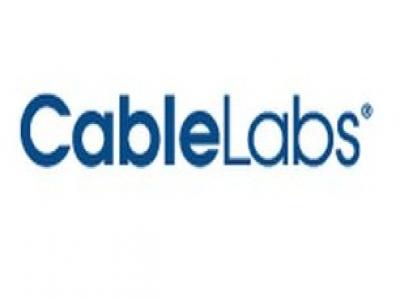CableLabs Builds Bridge To the ‘Internet of Things’
The smarter way to stay on top of the multichannel video marketplace. Sign up below.
You are now subscribed
Your newsletter sign-up was successful

The “Internet of Things” aims to keep the world connected, tying together everything from home-monitoring equipment such as locks and door sensors to parking meters, smart watches and other wearable computers.
And it’s expected to be big business. Cisco Systems estimates that the IOT, sometimes also called the Internet of Everything, or IOE, is a $19 trillion opportunity.
But IOT also presents cable with a potential problem as a set of organizations pursue and target this emerging market by developing standards-based ecosystems. Intel, Samsung and Cisco are among those behind the Open Interconnect Consortium; Nest, ARM and Samsung (apparently hedging its bets) are among the driving forces behind Thread; and Qualcomm, LG and Microsoft back the AllSeen Alliance (see sidebar).
Rather than creating an open ecosystem for IOT, these camps might end up inadvertently building relatively closed, proprietary systems that could limit a global, interoperable product environment.
CableLabs, the industry’s R&D arm, is trying to stay ahead of this by developing a “product” that can bridge the gaps between them as customers look for help on how to keep more aspects of their lives connected to the Internet.
“The current problem with the Internet of Things is that everybody’s got a solution,” Clarke Stevens, a principal architect in the applications technologies group at CableLabs, said. “Having thousands of solutions is worse than having no solution.”
He said AllSeen is open source (its framework for apps and devices is based on AllJoyn), which means it’ll be great for getting products developed quickly and out into the market to see what works, but could fall short as a long-term strategy independent of different operating systems and protocols. The Open Interconnect Consortium hopes to improve on that in a similar vein, but could have trouble keeping the standards element and open-code components in sync. In a recent blog post, Clarke noted that Thread will rely on existing standards, but is pushing for an IP- based approach for lightweight device communication to rival ZigBee, Z-Wave and other low-power networking technologies.
The smarter way to stay on top of the multichannel video marketplace. Sign up below.
Instead of sitting on the sidelines to see how everything shakes out, CableLabs is taking a proactive approach under the belief that cable can move forward on solutions for IOT. As for that “product” under development, Stevens said CableLabs aims to participate in those organizations as a member, urging them to support MSO-specific requirements and essentially build software that can bridge those emerging IOT protocols.
CableLabs will tackle that task in part by looking at ways devices are represented in data sets and how they can be mapped and translated into a common system. One example is lighting control. While one company might use a “1” or a “0” for “on” and “off,” another might use a percentage-based gauge for brightness. It gets even trickier once specific colors are added to the mix.
CableLabs wouldn’t say when that IOT product would launch, but it is working on small scale, proof-of- concept projects and will then look to build them up as its solution is further defined. Some of its early work was demonstrated at last month’s SCTE Cable-Tec Expo in Denver.
Who’s Down With IOT?
Three organizations have emerged on the standards front:
AllSeen Alliance
Premiere members: Electrolux, Haier, LG Electronics, Panasonic, Sharp, Sony, Technicolor, TP -Link, Microsoft, Silicon Image.
Community members include AT&T Digital Life, Cisco, D-Link, HTC , and CableLabs, among others.
Open Interconnect Consortium
Diamond members: Cisco, Intel, Mediatek, Samsung
Platinum members: ADT, Atmel, Dell, Eyeball Networks
Gold members: Acer, McAfee, SmartThings and Zula, among others.
Thread Group
Founding members: Yale Security, Silicon Labs, Samsung, Nest Labs (part of Google), Freescale Semiconductor, Big Ass Fans, AR M. Internet pioneer Vint Cerf, vice president and chief Internet evangelist at Google, is an adviser.
